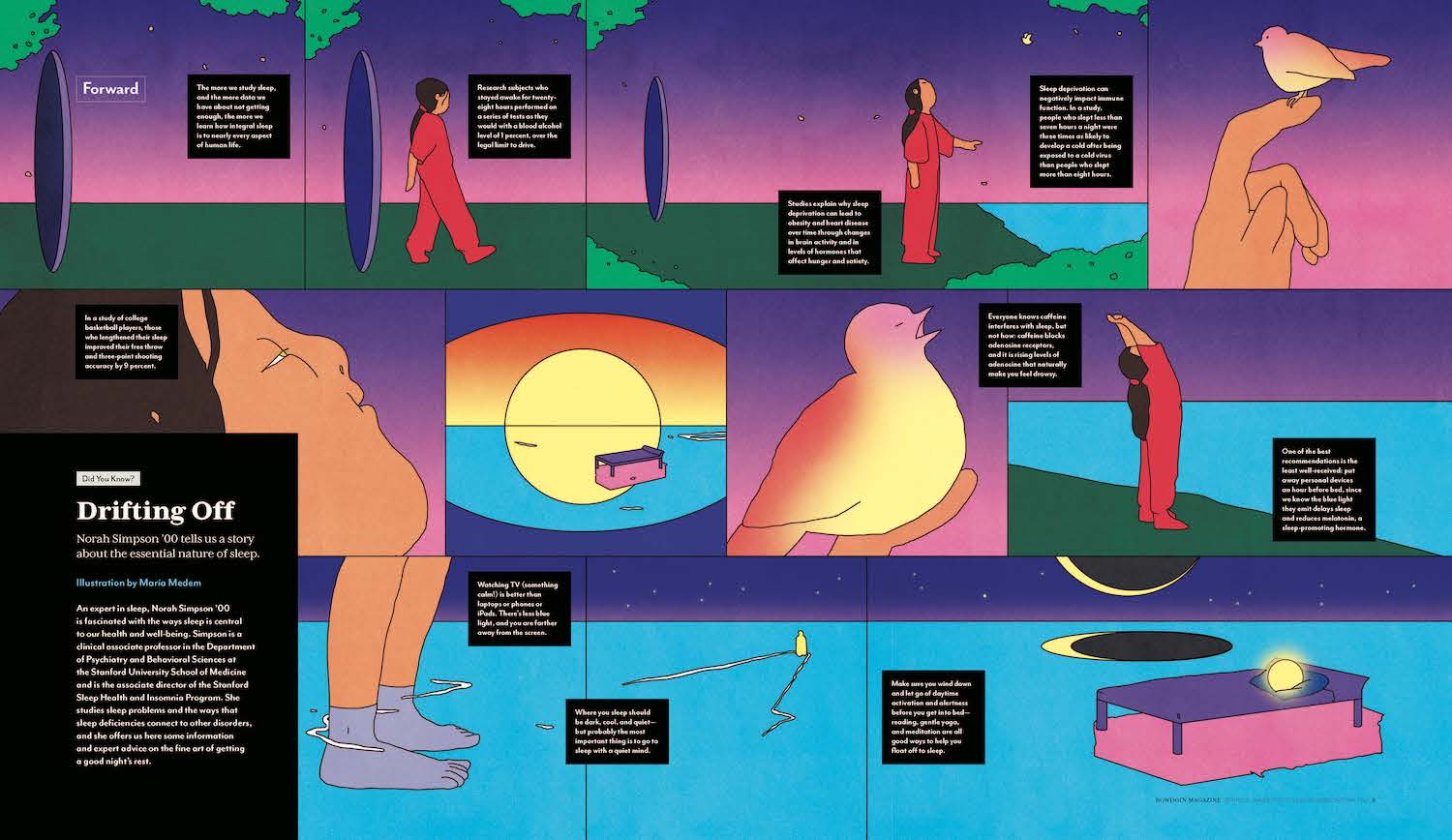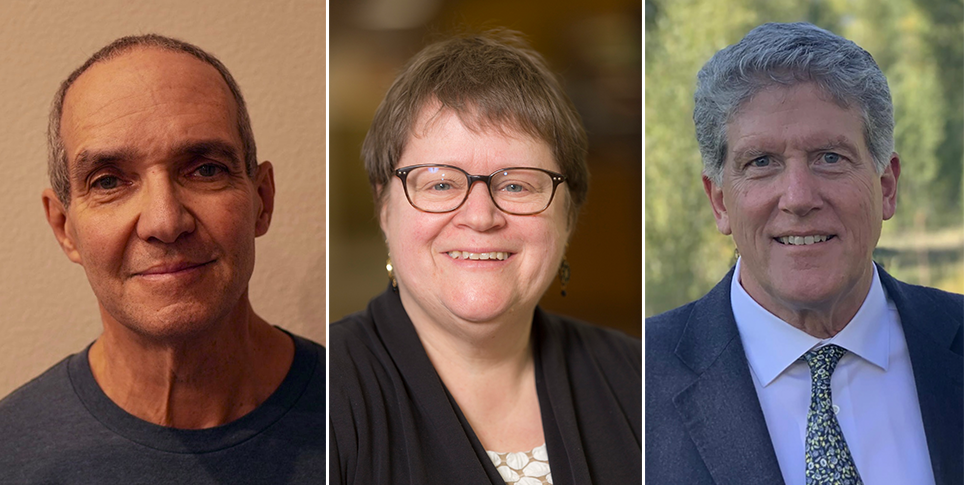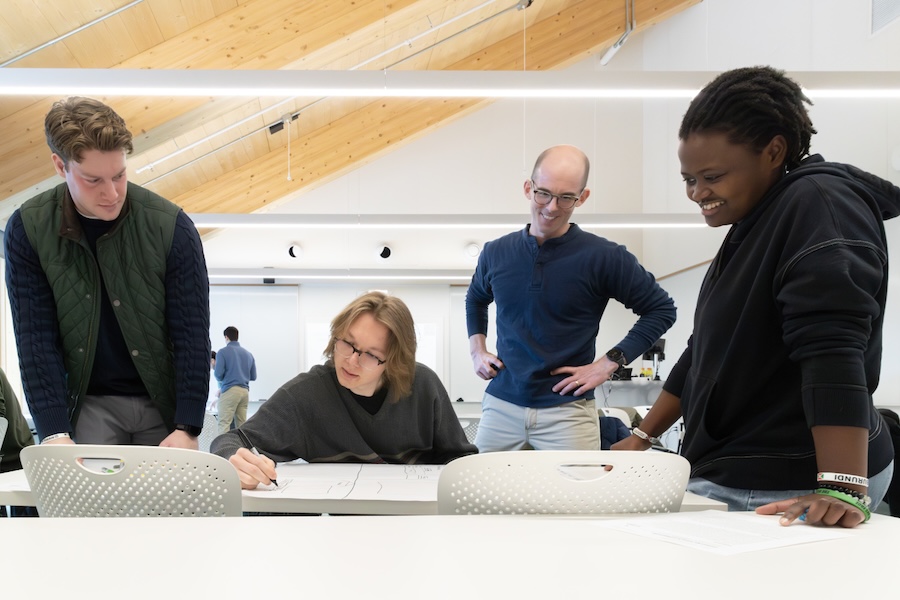Drifting Off
By Bowdoin Magazine
Norah Simpson '00 tells us a story about the essential nature of sleep.

Illustration by Maria Medem
An expert on sleep, Norah Simpson '00 is fascinated with the ways sleep is central to our health and well-being. Simpson is a clinical associate professor in the Department of Psychiatry and Behavioral Sciences at the Stanford University School of Medicine and is the associate director at the Stanford Sleep Health and Insomnia Program. She studies sleep problems and the ways that sleep deficiencies connect to other disorders, and she offers us here some information and expert advice on the fine art of getting a good night's rest.
- The more we study sleep, and the more data we have about not getting enough, the more we learn how integral sleep is to nearly every aspect of human life.
- Research subjects who stayed awake for twenty-eight hours performed on a series of tests as they would with a blood alcohol level of 1 percent, over the legal limit to drive.
- Studies explain why sleep deprivation can lead to obesity and heart disease over time through changes in brain activity and in levels of hormones that affect hunger and satiety.
- Sleep deprivation can negatively impact immune function. In a study, people who slept less than seven hours a night were three times as likely to develop a cold after being exposed to a cold virus than people who slept more than eight hours.
- In a study of college basketball players, those who lengthened their sleep improved their free throw and three-point shooting accuracy by 9 percent.
- Everyone knows caffeine interferes with sleep, but not how: caffeine blocks adenosine receptors, and it is rising levels of adenosine that naturally make you feel drowsy.
- One of the best recommendations is the least well-received: put away personal devices an hour before bed, since we know the blue light they emit delays sleep and reduces melatonin, a sleep-promoting hormone.
- Watching TV (something calm!) is better than laptops or phones or iPads. There’s less blue light, and you are farther away from the screen.
- Where you sleep should be dark, cool, and quiet— but probably the most important thing is to go to sleep with a quiet mind.
- Make sure you wind down and let go of daytime activation and alertness before you get into bed—reading, gentle yoga, and meditation are all good ways to help you float off to sleep.

This story first appeared in the Spring/Summer 2021 issue of Bowdoin Magazine. Manage your subscription and see other stories from the magazine on the Bowdoin Magazine website.



